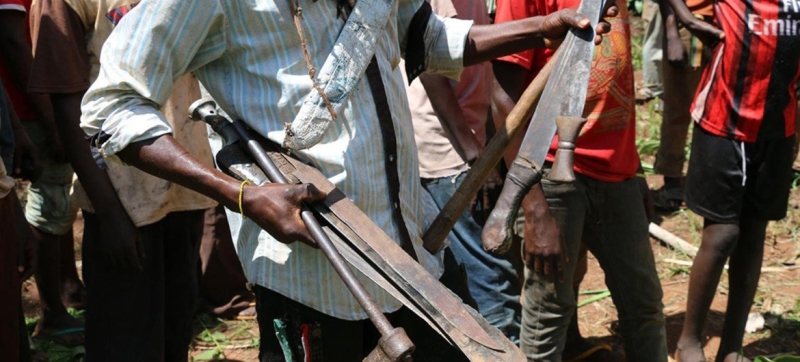- Puppet show enchants Children as Boi Mela comes alive on day 2 |
- DSCC Admin Salam’s drive to make South Dhaka a ‘clean city’ |
- 274 Taliban Dead, 55 Pakistan Troops Killed |
- Now 'open war' with Afghanistan after latest strikes |
- Dhaka's air quality fourth worst in world on Friday morning |
Two Ex-Militia Leaders Jailed for War Crimes in Central Africa

Thousands of civilians were killed in attacks by Anti Balaka militias in the conflict in the Central African Republic in 2013-14.
Two former leaders of the predominantly Christian Anti-Balaka militia in the Central African Republic have been convicted of multiple war crimes and crimes against humanity by the International Criminal Court (ICC).
Alfred Yekatom and Patrice-Edouard Ngaïssona were sentenced to 15 and 12 years in prison, respectively, for their roles in brutal attacks against civilians—primarily from the country’s mainly Muslim Seleka population—during the 2013–14 civil war.
They were found guilty “beyond any reasonable doubt” of leading and facilitating attacks on civilians in the capital, Bangui, and the country’s western regions.
Thousands were killed in the violence that swept through the Central African Republic following a 2012 coup led by the mainly Muslim rebel coalition, Seleka. The fighting took on a deeply sectarian nature as the Anti-Balaka militia launched a brutal campaign of reprisals.
The ICC’s Trial Chamber V found Mr. Yekatom responsible for several crimes committed during the attack on Bangui, events at Yamwara—a school where he had established a base—and during his group’s advance on the PK9-Mbaïki axis.
These crimes included murder, torture, forcible transfer and deportation, directing an attack against a religious building, and persecution.
Mr. Ngaïssona was convicted of aiding and abetting many of the same crimes, including persecution, forcible displacement, and cruel treatment.
Both men were found to have targeted Muslims based on the Anti-Balaka’s perception of collective guilt for Seleka abuses.
The judges sentenced Mr. Yekatom to 15 years and Mr. Ngaïssona to 12 years, with time already served to be deducted.
Charges of war crimes related to pillaging and directing an attack against a religious building during the attack on Bossangoa were not upheld against Mr. Ngaïssona. Similarly, charges of conscription, enlistment, and use of children were not upheld against Mr. Yekatom.
The Chamber noted that while religion was instrumentalised by armed groups during the conflict, the violence was not initially religious in nature.
Many witnesses testified that Muslims and Christians had lived peacefully together prior to the conflict.
The convictions mark the conclusion of a trial that began in February 2021. Over the course of proceedings, the prosecution called 114 witnesses, while the defence teams called 56. A total of 1,965 victims participated in the trial through legal representatives.

